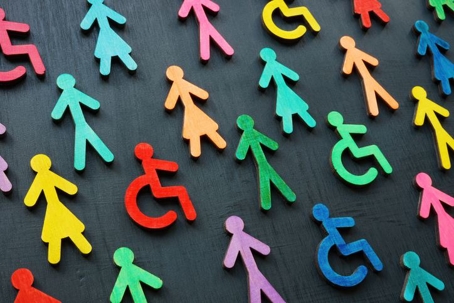In 1990, a significant milestone was achieved with the enactment of the Americans with Disabilities Act (ADA). This groundbreaking legislation aimed to ensure that qualified individuals with disabilities have the same opportunities as those without disabilities. The ADA guarantees equal access to public accommodations, employment, transportation, government services, and telecommunications for people with disabilities. As a result, state courts, including Virginia's Judicial System, play a crucial role in providing public programs and services while upholding the principles of the ADA.
Equal Access and Non-Discrimination
Title II of the ADA, under 42 U.S.C. § 12101 et seq., specifically addresses the rights of individuals with disabilities within Virginia's Judicial System. It emphasizes that qualified individuals with disabilities shall not face discrimination based on their disability in the courts' services, programs, or activities. This includes all aspects of the judicial process, ensuring fairness and impartiality.
Effective Communication
Virginia's Judicial System recognizes the importance of effective communication for people with disabilities. Upon request, the courts are committed to providing appropriate aids and services, such as qualified interpreters, to ensure that individuals with speech, hearing, or vision impairments can fully participate in court programs, services, and activities. This proactive approach helps bridge communication gaps and ensures equal engagement for all.
Reasonable Modifications for Equal Opportunity
To ensure equal opportunity for people with disabilities, Virginia's Judicial System is prepared to make reasonable modifications to its policies and programs. These modifications aim to provide individuals with disabilities an equal chance to participate in all court-related activities and programs. For instance, the courts welcome individuals with service animals, even in areas where pets are generally restricted.
Accommodation Requests
Recognizing that each individual's needs are unique, Virginia's Judicial System encourages accommodation requests. If an accommodation is needed for a specific court case or activity, individuals can reach out to the relevant court clerk. Otherwise, accommodation requests can be directed to the ADA Coordinator, whose information is available on Virginia's Judicial System website, www.vacourts.gov. Accommodation request procedures and forms are readily accessible through the ADA Coordinator as well.
Balancing Program Integrity
While ensuring accessibility is paramount, the ADA acknowledges that it should not impose undue financial or administrative burdens on Virginia's Judicial System. Thus, the ADA does not require actions that would fundamentally alter the nature of court programs or services. This balance allows the courts to continue functioning efficiently while upholding accessibility standards.
Addressing Accessibility Complaints
In case of any accessibility-related concerns, individuals can reach out to the circuit court clerk's office for issues related to that specific court. Other complaints can be addressed through grievance procedures overseen by the Office of the Executive Secretary. These procedures are designed to handle complaints promptly and fairly, reinforcing the commitment to ADA compliance.
No Surcharge for Accessibility
Virginia's Judicial System values equal access without additional financial burden on individuals with disabilities. There is no surcharge imposed on individuals or groups seeking auxiliary aids/services or reasonable policy modifications. Ensuring equal participation is regarded as a fundamental aspect of serving the community.
The Role of an Experienced Lawyer
Navigating legal matters can be complex, especially for individuals with disabilities seeking to uphold their rights under the ADA. Hiring an experienced lawyer can play a crucial role in ensuring that the rights of people with disabilities are protected throughout the legal process. A knowledgeable lawyer can provide invaluable guidance, advocate for necessary accommodations, and help individuals with disabilities assert their rights effectively in the courts.
In conclusion, the Americans with Disabilities Act has been instrumental in promoting equal access and opportunity for individuals with disabilities within Virginia's Judicial System. Upholding the principles of the ADA ensures that all individuals, regardless of their disabilities, have an equal chance to participate in the legal system and assert their rights. If you or someone you know is facing legal challenges related to disabilities, consulting an experienced lawyer can be a vital step in protecting and advocating for these rights. Call Carroll & Nuttall, PC, today at 703-273-7007 for advice on your specific situation

